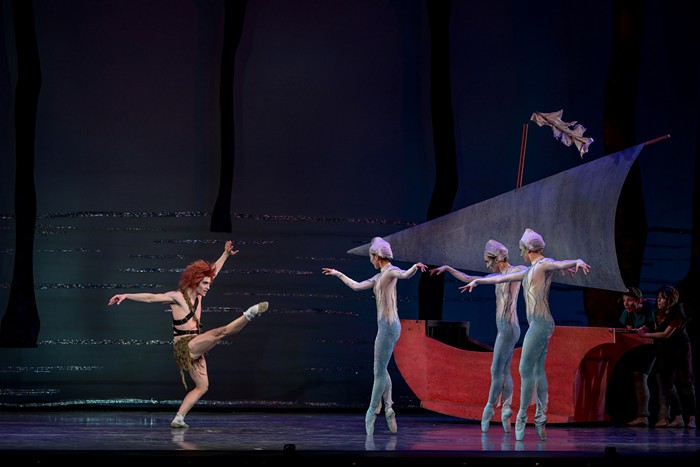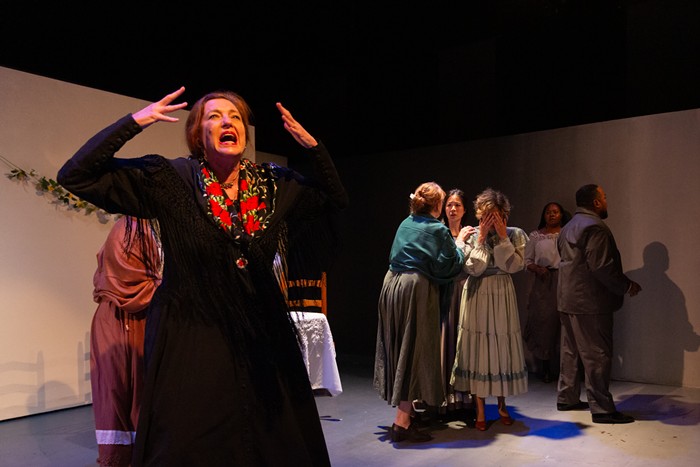Those who love zombies understand passion for zombies. Those who don't, never will. Song Kim knows zombie passion, and with Dead, has fulfilled a lifelong dream of doing a stage adaptation of the always-wanted but never-done fourth installment in Romero's little legacy of cult corpsitude.
"It's very short, but it's got a lot of density," says Song, who developed the play with writer Takeshi M. Ima and director Alan Smithee. "Where the movies follow the crisis from the first zombies rising and progresses to fewer and fewer living people and the zombie population rising, Dead picks up where they left off and follows what is presumably the last group of survivors. It's this band of four people out of the whole world who have managed to survive this far. The main drive of the play is the search for this one character who goes missing at the beginning."
Song is what's known as a Zombie Traditionalist, which means his zombies are not the cutesy "Braaiins"-blabbering louts who populate the graveyards of bad cartoons, but rather mindless drones (as one would expect a living corpse to be) with no impulse other than an unholy desire for human brains. "They're not cognitive at all," says Song. "They don't have intentions insofar that they can recognize them. They just came back to life, have no idea what they're doing, and hunger for human flesh for some reason."
Song and co. are in it for the thrill of creating zombies on stage, to be sure, but they also have bolder ambitions. Song's efforts to bring both Dead and the other evening's one-act, One of Three, are part of a grand plan to recreate film genres in a theatrical setting. Song calls his brand of movie-stage translation CinemaStage.
"I'm trying to see if I can carry over dynamics that are more commonly seen in movies, genres that you don't see much of done live onstage. Dead represents the horror film; you don't see a lot of horror plays. One of Three represents the noir gangster film, telling the story of a career criminal who must reexamine the morality and ethics of his career when called upon to initiate a new recruit. Noir plays like One of Three have been done on stage before, as it is fairly easy to recreate gangster period costumes and sets, and to simulate gunplay and mystery. But as far as this reviewer knows, few, if any, have ever dared attempt a zombie horror play. This is probably because the true thrill of zombie films (which is, naturally, the excessive gore) is very difficult to do on a stage night after night.
"For practical reasons, we don't have too much as far as special effects goes," says Song. "But there is a lot of action to try and compensate for the lack of actual blood and gore." He's on the phone, but sounds as if he's smiling. "There's plenty of zombie action. It wouldn't be a zombie play without zombies getting beat with things and shot down and stuff like that."
For skeptics, the idea of a serious play about zombies can be difficult to swallow, but this doesn't deter Song.
"As a spectator it's hard to watch [the movies] and not take a camp feel out of them," he says. "I think that's what we're trying to do with Dead also. As performers we're trying to take it very seriously, but at the same time, because there are zombies walking around and eating people, it's hard for the audience not to take some humor or camp element out of it.
"I've found in my experience that even if people don't take it seriously, what makes things like that work is that the cast take themselves seriously." JUSTIN SANDERS


















